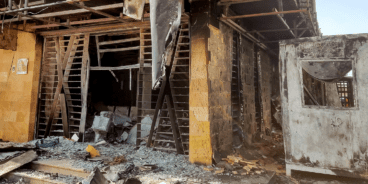
Falling Down on the Job
This article written by Prof. the Hon. Gareth Evans was originally published in Foreign Policy.
As the whole world watches the continuing calamity in Sri Lanka, with thousands of civilians dead and tens of thousands more at risk as government forces try to quash the last of the insurgent Tamil Tigers, the United Nations Security Council remains mired in debates over whether or not to even discuss the issue, with a minority of member-states obstructing any collective action in response to the crisis, or even an official review. (…)
The reality is that both the LTTE leadership — a murderous bunch of extremists for whom no tears should be shed by Tamils in Sri Lanka or by anyone anywhere — and the Colombo government have abdicated their responsibility to protect Sri Lankan civilians from mass-atrocity crimes. And the tragedy is that they have now been joined in this abdication by the Security Council itself, notwithstanding the unanimous resolution of the General Assembly, meeting at the heads of government level in 2005, that it should take “timely and decisive” action when “national authorities are failing to protect their populations from genocide, war crimes, ethnic cleansing and crimes against humanity.”
To their credit, France, the United States, Britain, and a number of other proactive Security Council members have ratcheted up pressure in recent weeks. They have pushed — albeit cautiously — for the council to review Sri Lanka as an official agenda item, and carefully negotiated a series of informal remarks on behalf of the council.
But because of consistent obstruction by a handful of member states, the issue continues to be relegated to informal statements and unofficial meetings — not in the Security Council chamber – – but in the basement of the U.N. building. Those signaling varying degrees of opposition to council engagement have been China, Russia, Libya, Vietnam and — most surprisingly and disappointingly, given its role in advocating human security generally and civilian protection specifically — Japan. While the tacit approval of a military endgame against a terrorist group is understandable enough, looking the other way as tens of thousands of innocent civilians are imperiled in the process is indefensible.
Since February, four U.N. envoys have been dispatched on missions to Sri Lanka to assess the deteriorating humanitarian situation, the status of displaced persons, and to discuss political solutions to the current crisis with President Rajapaksa and senior government officials. Despite obtaining a series promises from Colombo, no U.N. needs-assessment team has been received, humanitarian access remains limited, and the shelling continues.
Well aware of the absence of determined and united international action — by the council in particular — the government has defaulted on its promises and paid mere lip service to calls for restraint, all the while pursuing its military onslaught. But Colombo’s intense efforts to prevent a review by the Security Council, with much lobbying in member state capitals, show how much weight effective council action would have.
Immediate — and official — action by the Council should include securing a U.N. needs assessment, the lifting of all restrictions on the delivery of humanitarian aid, and open access for the ICRC and U.N. agencies to all reception and screening points. The council could also facilitate steps toward an internationally-supervised surrender of the LTTE and a lasting political settlement.
It must be made crystal clear to both the Tigers and the Sri Lankan government that they will be held accountable for their actions. The council could consider a U.N. commission of inquiry to examine the likelihood of war crimes committed by both sides. The longer the Security Council delays taking action of this kind, the longer atrocities will continue. Its relative silence is a matter for growing shame with each passing day.
Related Content


Atrocity Alert No. 352: Sudan, Afghanistan and International Day for Countering Hate Speech
